ACCOLADES FROM WORLD SCHOLARS
India’s contributions to world culture were colorfully described by Mark Twain as follows:

“This is India; Cradle of human race, birthplace of human speech, mother of history, grandmother of legend, great grandmother of tradition, whose yesterdays bear date with the smoldering antiquities of the rest of the nations…India had the start of the whole world in the beginning of things. She had the first civilization, she had the first accumulation of material wealth, she has the populous with deep thinkers and the subtle intellects; she had mines and woods and fruitful soil”.
Indeed, Mark Twain was right on target. In every field of human endeavor, Indians had made their mark. In its long and illustrious existence as a civilization, which, probably extends at least as far as 7 to 9 thousand BCE (the now-submerged city of Dwarka, which is located near the coast of Gujarat in North West India bears witness to this), it even made the first city-dwelling civilization, about 3 Millennia before the Sumerians. The video segments posted below explain further the archeological findings in Dwarka. Please visit:
http://www.indiancentury.com/dwar.htm
Below, we will post quotations from some other eminent scholars about the significance of the Indian civilization:

Will Durant, the Pulitzer Prize winning American author wrote in The Case for India: "India was the mother of our race and Sanskrit the mother of Europe's languages. She was the mother of our philosophy, mother through the Arabs, of much of our mathematics, mother through the Buddha, of the ideals embodied in Christianity, mother through village communities of self-government and democracy. Mother India is in many ways the mother of us all"
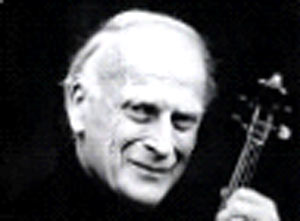
“ India is the primal source, the mother country”: Sir. Yehudi Menuhin (1915-1999).
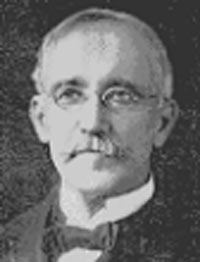
“ India early created the beginning of nearly all of the sciences, some of which she carried forward to remarkable degrees of development, thus leading the world”. So wrote Rev. Jabez T. Sunderland (1842-1936). He continued: “India was a far greater industrial and manufacturing nation than any in Europe or than any other in Asia….She had great engineering works. She had great merchants, great businessmen, great bankers and financiers.”
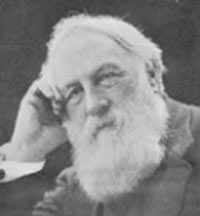
H.M. Hyndman (1842-1921) an eminent British publicist wrote: “ Many hundreds of years before the coming of the English, the nations of India had been a collection of wealthy and highly civilized people, possessed of great language with an elaborate code of laws and social regulations, with exquisite artistic taste in architecture and decoration, producing conceptions which have greatly influenced the development of the most progressive races of the West.”

Beatrice Pitney Lamb, former editor of he United Nations News wrote in her book: India: A world in transition: “ In addition to the still visible past glories of art and architecture, the wonderful ancient literature…. For well over a millennium and a half, the Indian subcontinent may have been the richest area in the world.”

General Joseph Davey, (1812-1851), the author of “A History of the Sikhs” wrote: “ Mathematical science was so perfect and astronomical observations so complete that the paths of the sun and the moon were accurately measured.”

William Cooke Taylor (1800- 1849), the author of “A Popular History of British India” Wrote: “ It was an astounding discovery that Hindustan possessed, in spite of the changes of the realms and changes of time, a language of unrivalled richness and variety; a language, the parent of all those dialects that Europe has fondly called classical- the source alike of Greek flexibility and Roman strength.”

Count Louis Hamon Cheiro (1866-1936) wrote: “ Long before Rome or Greece or Israel was even heard of, the mountains of India point back to an age, of learning, beyond, and still beyond. From the astronomical calculations that the figures in their temples represent, it has been estimated that the Hindu understood the precession of the equinoxes centuries before the Christian era.”
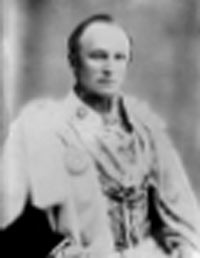
Lord Curzon (1859-1925) viceroy of India from 1899-1905 and Chancellor of Oxford University wrote: “ Powerful empires existed and flourished here (in India) while Englishmen were still wandering, painted in the woods and while the English colonies were a wilderness and a jungle.”
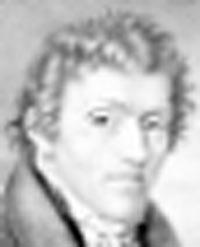
The German philologist and archaeologist, Friedrich Creuzer (1771-1858) wrote in “The Mother of Us All”: “If there is country on earth which can justly claim the honor of having been the cradle of the human race or at least the scene of primitive civilization, the successive developments of which carried into all parts of the ancient world….that country assuredly is India.”

Ali bin Abi Talib, the Fourth Caliph (656-661) wrote in Hindu Muslim Cultural Accord, “The land where books were first written and from where wisdom and knowledge sprang is India.”
Freidrich von Schlegel (1772-1829), the German writer, critic, philosopher, philologist and author wrote: “ Great India is not only at the origin of everything, she is superior in everything, intellectually, religiously or politically and even the Greek heritage seems pale in comparison. Here is the actual source of all languages, all the thoughts and poems of the human spirit; everything, everything without exception comes from India.”
So, how did India end up as a symbol of poverty and backwardness in the world? This had taunted me for a long time. What happened to Bihar, which was from time immemorial the seat of culture and government in India (Magadha in Hindu mythology) is illustrative of what happens to a nation that has material wealth and goods coveted by foreigners. Bihar state in modern India is poor and near the bottom of the pile among the Indian states, in both literacy rate and Human Development Index (HDI). This transformation was the direct result of centuries of invasions of India by, especially the Muslims and destruction of the monuments, temples and other structures of value, until Magadha’s soul was destroyed.
Even before the time of Alexander the Great, India was a magnet to foreign invaders as well as traders and scholars. Even Christopher Columbus who set sail and charted a course to the West, and had no knowledge of a landmass in his way, was going in pursuit of the “Indies”. Wave after wave of Islamic and Central Asian invasions had already begun to suck the lifeblood of India in the latter part of the first Millennium CE. by these Muslim invaders. But the process was completed by the European colonizers, who unlike the Muslims, did not make India their home but looted the wealth of India and gave precious little in return. While Europe reaped the benefits of this transfer of wealth, which fueled the Industrial revolution and scientific developments, the Indians were not given the benefit of such improvements in industries, improvement in education or proper control of population growth. Is there any wonder then, by the time the British finally left India, the country was one of the poorest in the world, and having almost insurmountable problems in every aspect of life? It should be remembered that India under the Mughal rule (right before the European colonization) was the richest country in the world, having 20% of the world GDP! The newly free India had to literally build industrial, educational, healthcare, family planning and all other aspects of the society, literally from scratch. After seventy years of independence, India is now poised to regain its prior eminence and its rightful place in the world.